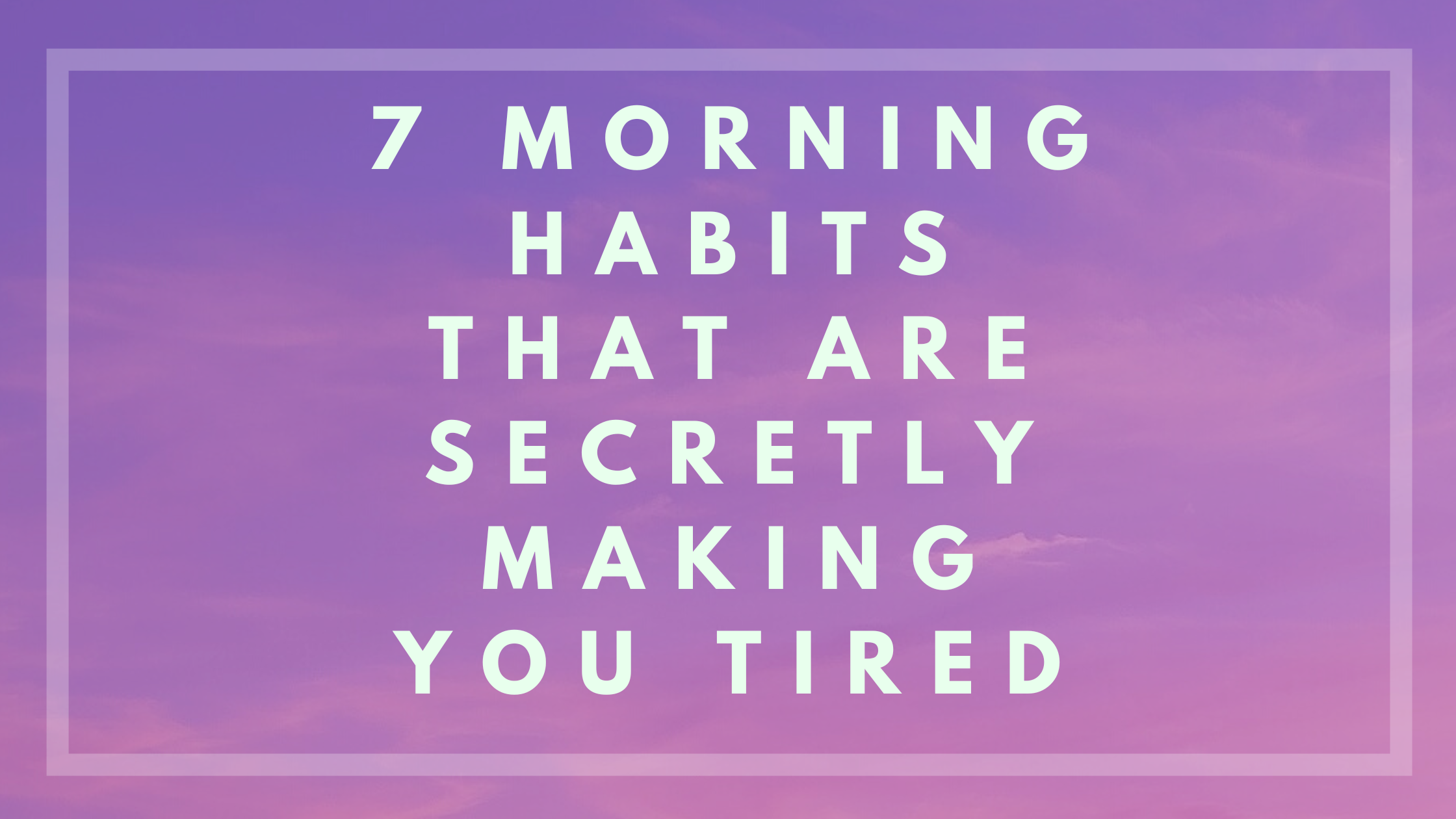You wake up, go through your routine, maybe even check off a few to-dos—but by mid-morning, your energy crashes. Sound familiar? You’re not alone. Feeling tired in the morning isn’t always about how many hours of sleep you got. Sometimes, it’s your morning habits that are quietly draining your energy before the day even begins.
The truth is, what you do in the first hour after waking sets the tone for your entire day. And a few common missteps might be stealing your focus, productivity, and energy—without you even realizing it.
Here are 7 everyday morning habits that could be secretly making you tired, and how to shift them for better energy and clarity.
- Hitting the Snooze Button
It feels harmless to get “just five more minutes,” but pressing snooze actually confuses your brain. After that first alarm, your body starts to drift back into a new sleep cycle. When the alarm goes off again a few minutes later, you’re waking up mid-cycle—groggier than you were the first time.
This state, known as sleep inertia, can last for hours and leave you feeling sluggish, not refreshed.
Try this instead: Place your alarm across the room and get up the first time it rings. Once you’re up and moving, your body starts producing cortisol naturally to help you wake up with energy.
- Skipping Water and Going Straight for Coffee
Your body wakes up in a mildly dehydrated state. If the first thing you drink is coffee, you’re introducing a diuretic before replenishing your fluids, which can lead to headaches, brain fog, and fatigue.
Dehydration affects your circulation and brain function—both key to feeling alert.
Try this instead: Drink a glass of water as soon as you wake up. Add lemon or a pinch of sea salt for extra minerals and digestion support. Then enjoy your coffee after you’ve hydrated.
- Reaching for Your Phone First Thing
Checking messages, scrolling through social media, or diving into emails the moment you wake up overwhelms your brain with information and pulls you into reactive mode. This triggers stress hormones and prevents you from easing into the day with clarity.
The blue light from your phone also affects your melatonin levels, further throwing off your natural energy rhythm.
Try this instead: Spend your first 10–15 minutes phone-free. Use that time to stretch, breathe, drink water, or simply sit in silence before engaging with the outside world.
- Skipping Breakfast or Grabbing a High-Sugar Option
What you eat—or don’t eat—first thing in the morning can make or break your energy levels. A high-sugar breakfast like cereal, pastries, or sweetened coffee spikes your blood sugar, giving you a quick burst of energy followed by a hard crash.
Skipping breakfast altogether can lead to low blood sugar, causing fatigue, poor focus, and irritability.
Try this instead: Choose a balanced breakfast with protein, fiber, and healthy fats. Think eggs with avocado, a smoothie with greens and seeds, or oatmeal with nuts and berries. These give you sustained energy that lasts through the morning.
- Staying in Dim Lighting
Your circadian rhythm, or internal body clock, is regulated by light exposure. Waking up and staying in dim lighting signals to your body that it’s still nighttime, delaying the natural rise in cortisol that helps you feel alert and focused.
Without exposure to bright light, your energy levels stay low longer than necessary.
Try this instead: Open your curtains right away or step outside for a few minutes. Natural sunlight helps reset your internal clock, boosts your mood, and supports better sleep at night too.
- Rushing Without Grounding Yourself
If your mornings start in a rush—running late, multitasking, or skipping any kind of grounding—it can create a sense of stress that carries through your entire day. This low-grade stress exhausts your nervous system and makes it harder to focus or feel energized.
Try this instead: Even just five minutes of intentional stillness can make a difference. Whether it’s stretching, deep breathing, journaling, or sipping your drink in silence, give your body a chance to transition gently into the day.
- Sitting for Too Long Right After Waking
Going from bed to couch to desk with minimal movement keeps your circulation sluggish and your metabolism slow. Your body needs movement to wake up fully and produce energy naturally.
Without it, your muscles feel tight, your brain feels foggy, and your energy stalls.
Try this instead: Add light movement to your morning—take a short walk, do a few stretches, or follow a five-minute yoga flow. Movement boosts oxygen and blood flow, both essential for lasting energy.
Final Thoughts
If you’re constantly feeling tired during the day, your morning habits might be working against you. The good news is that small, mindful adjustments can bring powerful shifts.
You don’t need to overhaul your routine overnight. Start with one habit—maybe it’s drinking water before coffee, avoiding your phone in the first ten minutes, or opening the curtains right away. As your body adjusts, you’ll start noticing more clarity, more focus, and more energy to move through your day with ease.
The way you start your morning is the foundation for how you feel all day. Build it with care, and your body will respond with the energy and clarity you’ve been missing.




